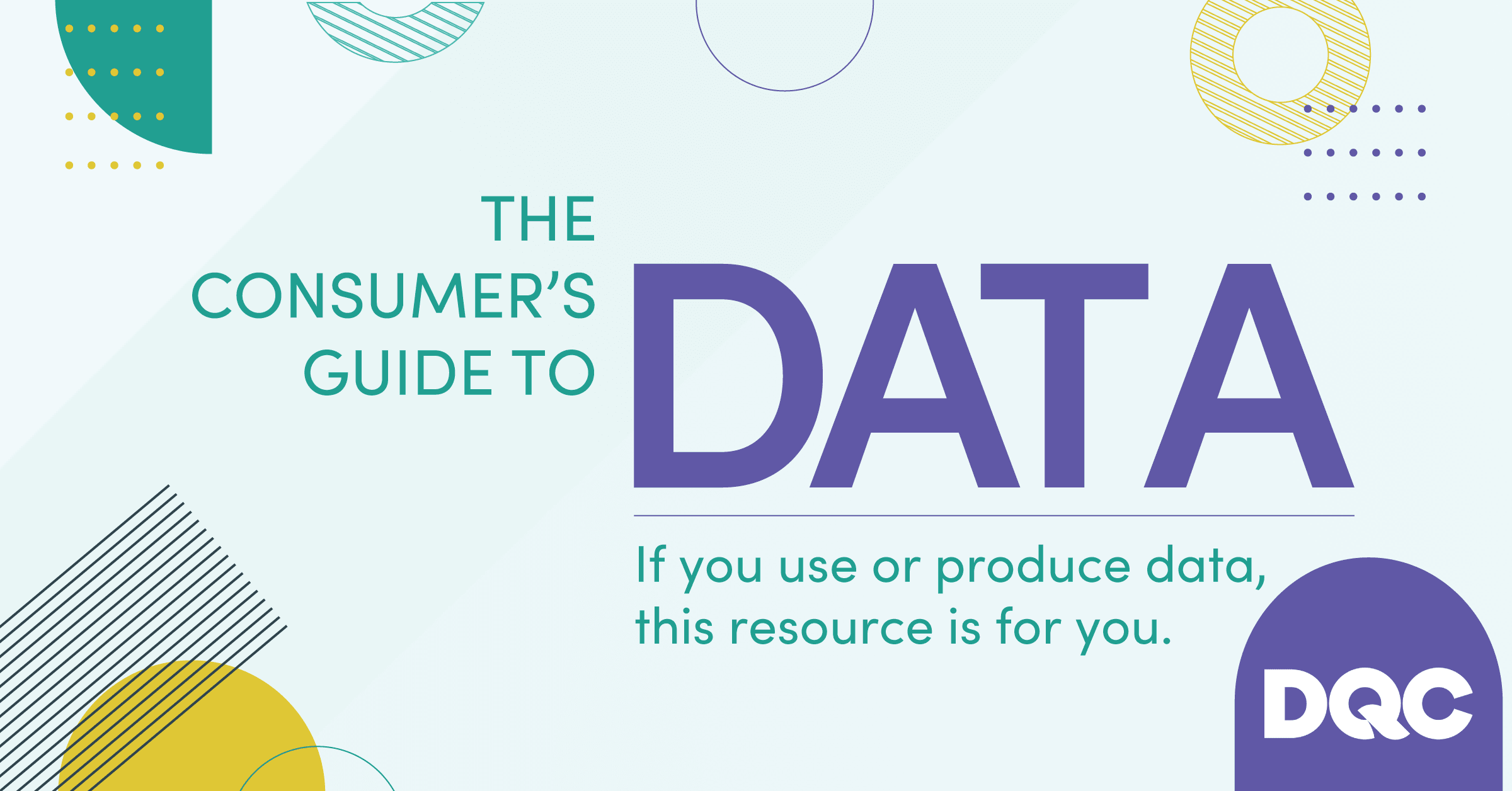DQC’s new Consumer’s Guide to Data breaks down what it means to trust data, how leaders can make the data trustworthy, and how communities can begin to trust the data
WASHINGTON (June 24, 2021) – Data reflects a series of decisions made by people—and those decisions affect the story that data tells, what it captures, and how it can and should be used to inform decisionmaking. Because of this, mistrust in data is often the result of incomplete information and a lack of context.
The Data Quality Campaign’s (DQC) latest resource, The Consumer’s Guide to Data, breaks down what it means when consumers say they don’t trust the data and provides guidance on how to build it. This tool provides practical tips to help both producers of data (state and district leaders) and consumers of data (individuals, parents, families, and communities) ask smart questions about the data they see so they can gain clarity, uncover biases, understand how to foster trust in data, and take action armed with full information.
“People don’t use data they don’t trust. And in the age of ‘fake news’ and misinformation, trust is a precious commodity. It’s incumbent upon state and local leaders to ensure that their data is worthy of trust and use,” said DQC President and CEO Jennifer Bell-Ellwanger. “But trust is a two-way street, and communities must also be equipped to ask questions about the data they see.”
Understanding the decision points that shape the numbers and knowing which questions to ask about that data are critical. This information is a necessary building block of trust and, therefore, essential to consumers as they make decisions based on that data. Building trust requires unpacking these issues and developing the knowledge and skills to actively change language, policies, and practices.
Building this trust requires rethinking how leaders frame data. Decisionmakers must prioritize asset framing, or reconsidering how they present information about communities and what individuals from different communities bring to the classroom. Conversations about asset framing help leaders at all levels change narratives and reframe their goals, including how to collect, frame, and report data.
The Consumer’s Guide to Data includes resources for:
- Consumers of data to ask questions and unpack the decisions that shaped the data.
- Producers of data to build trust in data through transparency.
- Decisionmakers to shift their mindset toward using an asset frame for data.
“Regardless of your role, the Consumer’s Guide to Data will help you reflect on the context behind the data you’re viewing. It will help you rethink what the data says about individuals and what those individuals bring to their communities,” said Bell-Ellwanger. “State and local policy leaders must work in partnership with their communities to create space for productive conversations about what the data shows in service of finding solutions to help individuals succeed.”
Click here to view the full resource on DQC’s website.
###
Contact: Blair Mann, bmann@dataqualitycampaign.org, 610-724-5914
About the Data Quality Campaign
The Data Quality Campaign is a nonprofit policy and advocacy organization leading the effort to bring every part of the education community together to empower educators, families, and policymakers with quality information to make decisions that ensure that students excel. For more information, go to dataqualitycampaign.org and follow us on Facebook and Twitter (@EdDataCampaign).


